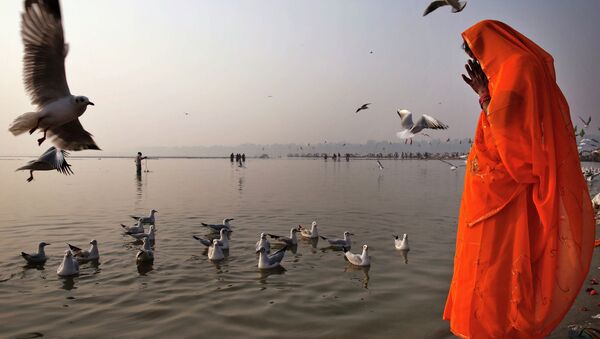It has extended these protections as an effort to shield the rivers from pollution. Since the glaciers and rivers are people under the law, you have no more right to dump trash on them than you do on, say, your neighbor.
"In order to preserve and conserve [the glaciers]," the justices said, they are bestowing "the status of a legal person, with all corresponding rights, duties and liabilities of a living person."
It's not just the glaciers themselves that will enjoy these rights, but their entire ecosystems: lakes and rivers, jungles and forests, even the air itself is considered a juristic person under the court's edict.
"The rights of these entities shall be equivalent to the rights of human beings and any injury/harm caused to these bodies shall be treated as injury/harm caused to human beings."
The High Court claims that this measure is needed to protect the state's natural beauty. Gangotri, which is about 62,000 feet long, has shrunk 2,800 feet in the last quarter century. The Ganges and Yamuna Rivers are two of the most polluted in the world, and previous attempts to clean them have been stymied by both government corruption and the sheer enormity of the task.
In 2012, the government of New Zealand gave legal personhood to the Whanganui River due to its importance in the culture and religion of the indigenous Maori people. The measure went into effect in 2017, making the river the first ever body of water to become legal person.
Uttarakhand seems to have taken inspiration from the Kiwis' decision, as it declared the Ganges River a living entity just four days after the New Zealand parliament made their announcement.
Under international law, organizations such as companies, certain religious temples and the European Union are considered to be persons. There is also the Tree That Owns Itself in Georgia, but the legal status of that tree's personhood is not totally clear.




